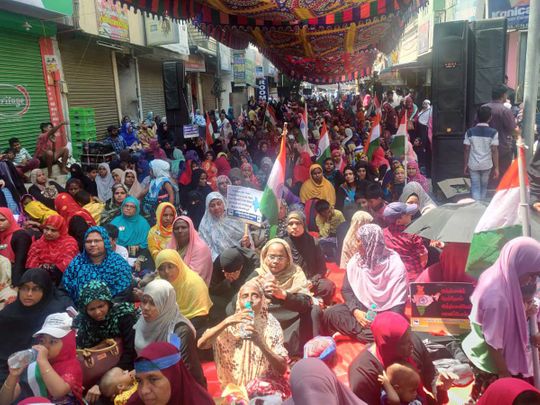
New Delhi: India has said that the Citizenship Amendment Act (CAA) is an internal matter and no foreign party has any standing on issues pertaining to the country’s sovereignty. It was responding to the UN Human Rights Council (UNHRC) for filing an intervention plea on the matter with the Supreme court.
“The Citizenship Amendment Act is an internal matter of India and concerns the sovereign right of the Indian Parliament to make laws. We strongly believe that no foreign party has any locus standi on issues pertaining to India’s sovereignty,” the Ministry of External Affairs said.
The plea by the UNHRC asked the court to make the UN agency a party in the case against the CAA that is being heard by the top court, reports said.
“We are clear that the CAA is constitutionally valid and complies with all requirements of our constitutional values. It is reflective of our long standing national commitment in respect of human rights issues arising from the tragedy of the Partition of India,” the ministry said.
“India is a democratic country governed by the rule of law. We all have utmost respect for and full trust in our independent judiciary. We are confident that our sound and legally sustainable position would be vindicated by the Hon’ble Supreme Court,” the ministry added.
India has been embroiled in protests since December, when Parliament passed a bill amending the country’s citizenship law. The new law provides a fast track to naturalisation for some migrants who entered the country illegally while fleeing religious persecution. But it excludes Muslims, which critics say is discriminatory and a violation of India’s Constitution.
Amicus curiae
The plea, filed on behalf of Michelle Bachelet Jeria, UN High Commissioner for Human Rights, sought to intervene as an amicus curiae (third party) in the matter by virtue of mandate to protect and promote human rights and to conduct necessary advocacy in that regard, PTI reported.
The Office of the High Commissioner of Human Rights (OHCHR) welcomed the “stated purpose of the CAA” to protect “some persons from persecution on religious grounds”, but raised the issue of exclusion of various sects of persecuted Muslims under the law.
“The CAA can potentially benefit thousands of migrants in an irregular situation, including refugees, who might otherwise face obstacles in obtaining protection from persecution in their countries of origin including through the grant of citizenship. This is a commendable purpose,” the plea said.
It added however that there exist “religious minorities in these countries, especially of the Muslim faith, including Ahmadia, Hazara and Shia Muslims whose situations would warrant protection on the same basis as that provided in the preferential treatment proposed by the CAA”.
The apex court had on December 18 sought the government's response on a batch of petitions challenging the constitutional validity of CAA.
The OHCHR said the CAA raised important issues with respect to international human rights law and its application to migrants, including refugees.
The plea said the UN body seeks to “assist the Court, in examining the compatibility of the CAA with India’s Constitution, in light of India’s obligations under the international human rights law”.
- with inputs from agencies








